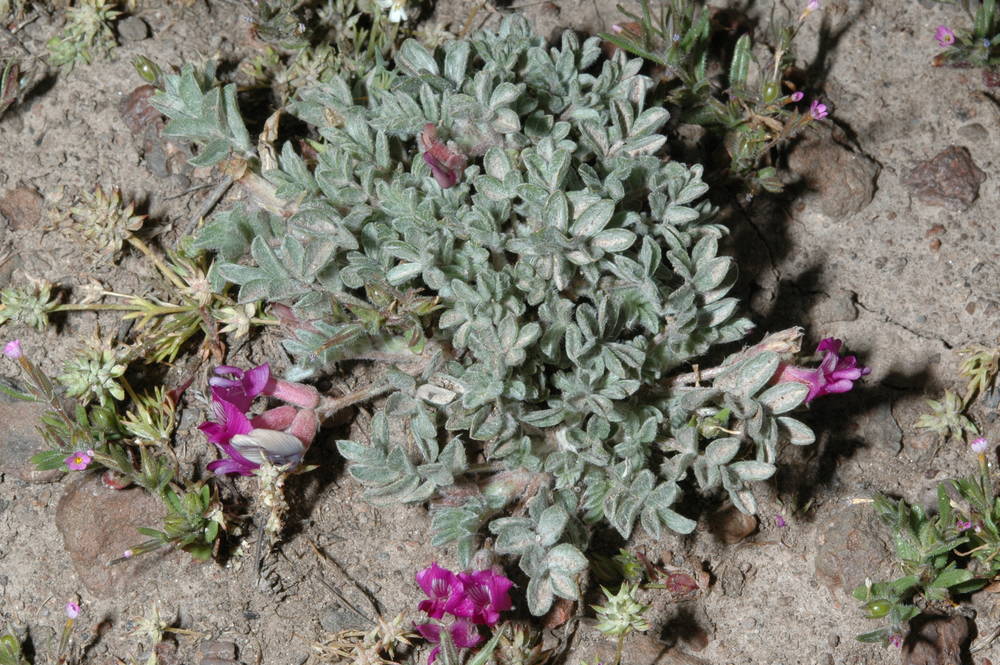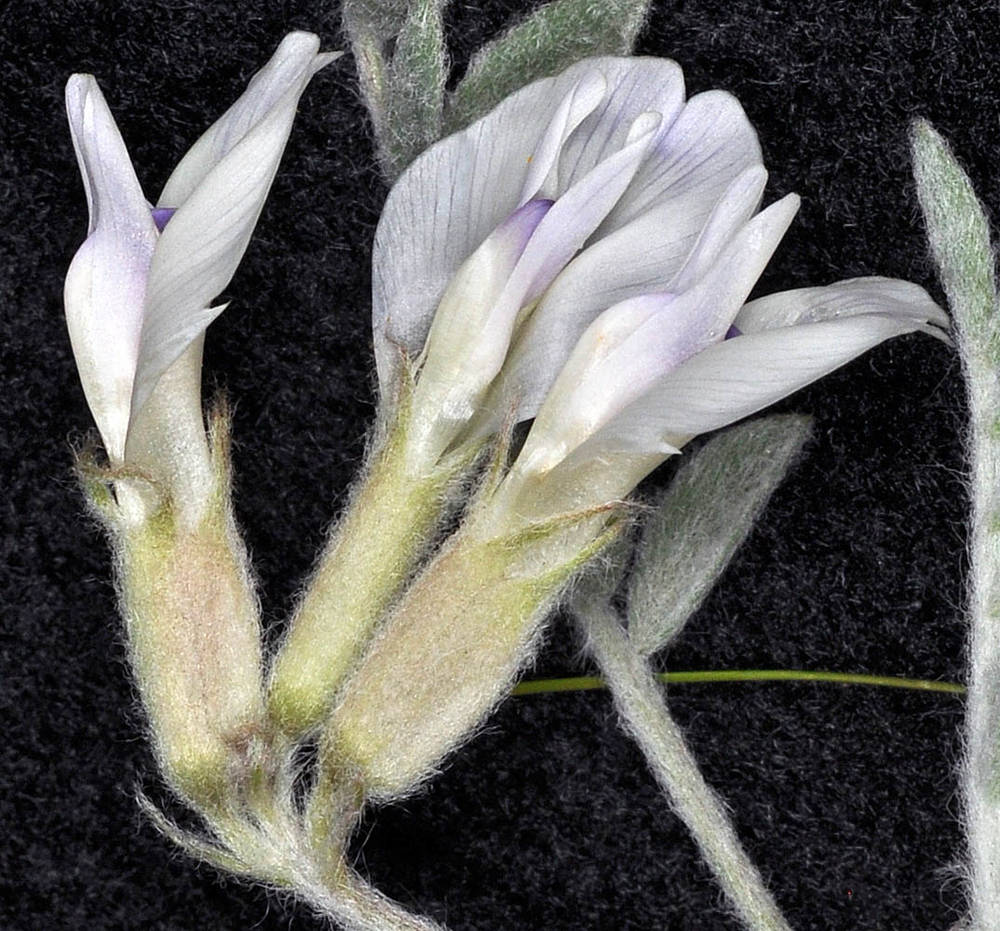Astragalus purshii
Astragalus purshii var. purshii
Pursh's milkvetch, woollypod milkvetch
Pursh's milkvetch
prostrate, loosely to densely tufted, 0–20 cm.
0–10 cm.
1–12(17) cm;
leaflets (3)5–17(21), elliptic to oblanceolate, 2–14(20) × 1–7 mm;
tips obtuse to acute;
surfaces densely villous;
stipules 2.5–15 mm; free.
(1.5)3–10(15) cm;
leaflets (5)7–15(17).
1–6-flowered.
racemes or subumbels, 1–12-flowered;
peduncles 1–14 cm;
bracts 4–9 mm;
pedicels 2–4.3 mm;
bracteoles 0–2.
ascending at anthesis;
calyces 5.5–16(19) mm, often purple, villous-pilose with white or mixed white and black hairs;
tubes 8.5–12.5 mm;
teeth subulate, 2.2–6 mm;
corollas 19–27 mm; whitish to ochroleucous or pink-purple;
ovules 14–40(46).
calyces (12)13–16(19) mm;
corollas 19–25(27) mm, white or cream;
keel tips spotted;
wings and banners dull bluish purple-tipped.
unilocular, ascending, obliquely ovoid, usually curved, obcompressed, scarcely to deeply sulcate; (7)13–27(30) × 3.5–11 mm, densely white to tawny tomentose or densely villous;
hairs nearly always concealing valve surfaces;
valves coriaceous, sessile or on gynophores 0–1.6 mm.
not or very shallowly sulcate ventrally.
=22.
Astragalus purshii
Astragalus purshii var. purshii
Western North America. ~8 varieties; 4 varieties treated in Flora.
Throughout western North America, particularly in the Intermountain Region, this is a low, tufted milkvetch with white or gray villous hairs and pods resembling balls of cotton. Barneby (1964) stated, “Attempts to devise a practical key to the varieties of A. purshii are never wholly successful.” Variety ophiogenes, the Snake River milkvetch, a native of Idaho, has been reported from Malheur County, but this is apparently based on misidentifications of A. purshii var. lagopinus. Variety ophiogenes has 3–11-flowered racemes and 9–17 leaflets.
Dry hillsides and plains; sagebrush communities. Flowering May–Jun. 400–2200 m. BR, BW, Col, ECas, Owy. CA, ID, NV, WA; north to British Columbia, northeast to Saskatchewan, east to ND, southeast to UT, CO. Native.
Richard Halse
Richard Halse
- Local floras:
BC,
CA,
OR,
WA
- Local Web sites:
CalFlora,
CalPhotos,
Flora NW,
PNW Herbaria,
Turner Photog.
WildflowerSearch
iNaturalist (observations)
USDA Plants Database
- LBJ Wildflower Center
- SEINet
- Plants of the World Online
- Encyclopedia of Life
- Wikipedia
- Google Image Search
- Local floras:
BC,
CA,
OR,
WA
- Local Web sites:
CalFlora,
CalPhotos,
Flora NW,
PNW Herbaria
WildflowerSearch
iNaturalist (observations)
USDA Plants Database
- LBJ Wildflower Center
- SEINet
- Plants of the World Online
- Encyclopedia of Life
- Wikipedia
- Google Image Search





